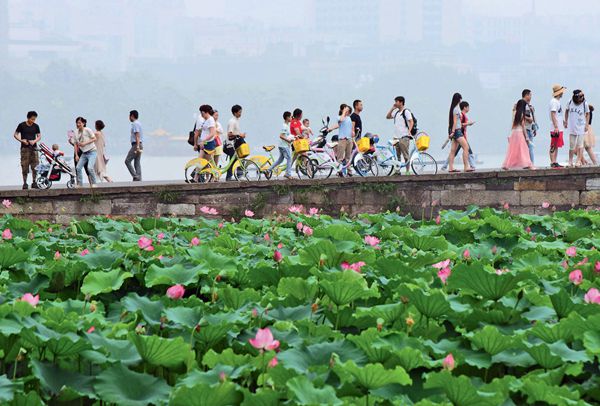Hangzhou: Ancient yet Modern City
China Today, September 6, 2016 Adjust font size:

Tourists admire blooming lotuses on the West Lake.
Since Hangzhou is known as the land of tea and silk, the tea and silk museums are big draws. Equally famous worldwide is the richly decorative Hangzhou brocade made from colored silks. The secrets of the Chinese technique eventually spread West via the ancient Silk Road. Even today, brocade is presented as a state gift. It was given to former U.S. presidents Bill Clinton and George W. Bush by their Chinese counterparts.
Visiting the porcelain museum is also a must in Hangzhou. The Southern Song Dynasty (1127-1279) relocated the capital to Hangzhou after withdrawing from northern China. But the royal and noble families maintained an extravagant lifestyle. Consequently, elegant porcelain wares were in great demand. The history of ceramic production can be found in the Southern Song Royal Kiln Museum.
There are also museums dedicated to Hangzhou’s history as a manufacturing base for tools and weapons. The museum of knives, scissors and swords testifies to Hangzhou’s long history as a manufacturing base for these tools and weapons. In ancient times these locally-made swords were favorites of generals. Nowadays, the Zhang Xiaoquan brand of scissors is still chosen as a gift or souvenir by Chinese tourists. There is also a museum of Hangzhou cuisine reflecting its status as one of the eight Chinese cuisines according to traditional Chinese gastronomy.
Paying a visit to nearly every museum in Hangzhou is free of charge. They are closed every Monday.